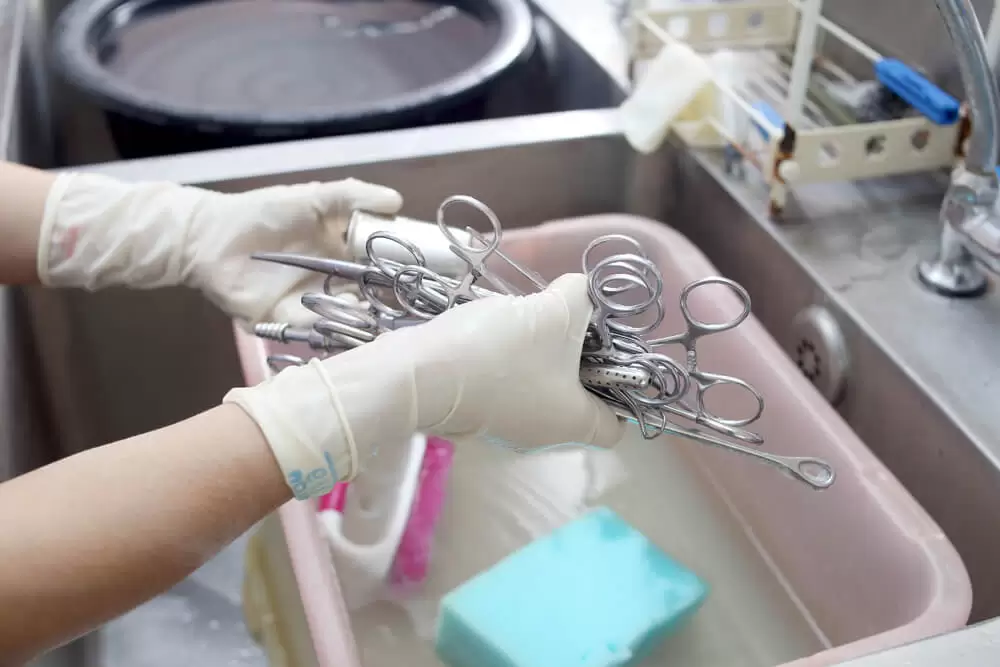
Sterile Care for Surgical Instruments
Surgical instruments are the lifeblood of the medical profession, and their proper care and maintenance are paramount. In this article, we’ll delve into expert tips on ensuring the longevity and effectiveness of these critical tools.
1. The Importance of Regular Maintenance
Regular maintenance is the foundation of surgical instrument care. By following a structured maintenance routine, you can extend the life of your instruments and optimize their performance.
2. Cleaning: The First Line of Defense
Thorough Cleaning for Optimal Performance
The cleanliness of surgical instruments is non-negotiable. To ensure your instruments are in top condition, follow these cleaning guidelines:
- Immediate Cleaning: After each use, clean instruments immediately to prevent biological material from drying and adhering to the surface.
- Use Enzymatic Cleaners: Enzymatic cleaners are highly effective in breaking down organic matter, ensuring a thorough clean.
- Ultrasonic Cleaning: Consider ultrasonic cleaning for intricate instruments, as it can reach areas that manual cleaning may miss.
3. Inspection: Identify Wear and Tear
Inspection for Safety and Precision
Regular inspections are essential to identify signs of wear and tear. Here’s how you can do it effectively:
- Visual Inspection: Carefully examine each instrument for visible damage, such as rust, discoloration, or pitting.
- Functional Testing: Ensure that moving parts and mechanisms work smoothly, without any stiffness or obstruction.
- Measurement Verification: Confirm that measuring instruments, such as calipers or rulers, provide accurate measurements.
4. Lubrication: Keeping Things Smooth
Lubrication for Smooth Operation
Proper lubrication is key to ensuring that hinged instruments, like scissors and forceps, operate smoothly. Here’s what you need to know:
- Use Silicone-Based Lubricants: Silicone-based lubricants are recommended, as they don’t damage instrument surfaces.
- Apply Sparingly: Apply a small amount of lubricant only where it’s needed to avoid excess buildup.
- Operate Instruments: After lubrication, work the instrument to distribute the lubricant evenly.
5. Sterilization: Ensuring Patient Safety
Sterilization for Infection Control
Sterilization is the final and most crucial step in surgical instrument care. The process ensures that instruments are free from pathogens and safe for patient use.
- Follow Manufacturer Guidelines: Adhere to the manufacturer’s recommended sterilization methods and parameters for each instrument.
- Regular Maintenance of Sterilizers: Keep sterilization equipment well-maintained and regularly serviced to ensure its efficacy.
- Sterility Maintenance: Store sterilized instruments in a clean, dry, and sterile environment to maintain their sterility until use.
6. Documenting Maintenance
Detailed Records for Accountability
Maintaining records of all cleaning, inspections, lubrication, and sterilization processes is essential. It helps ensure accountability and traceability in the event of any issues or concerns.
7. Training and Education
Empower Your Team with Knowledge
Providing comprehensive training to your healthcare team on proper instrument care is crucial. Knowledgeable staff can identify issues early and contribute to the longevity of your surgical instruments.
In conclusion, the care and maintenance of surgical instruments are non-negotiable aspects of healthcare. By following these expert tips, you can maximize the lifespan of your instruments, ensure patient safety, and contribute to the success of medical procedures. Remember, well-maintained surgical instruments are the foundation of quality healthcare.

